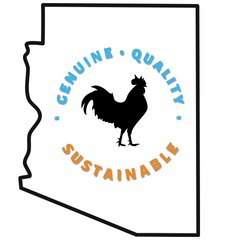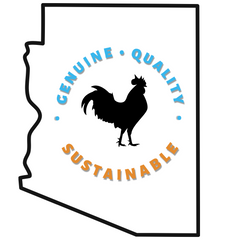Essential Nutrition Guide for Coturnix and Celadon Quail
Raising healthy Coturnix and Celadon quail requires understanding their nutritional needs. These small birds have specific dietary requirements that change as they grow. Here's what quail need to be healthy and productive throughout their lives.
Key Takeaways
- Protein requirements vary from 24-28% for chicks to 18-20% for adults
- Energy needs are around 2,800 kcal/kg for growing quail and 2,550 kcal/kg for layers
- Vitamins A, D3, E, and B-complex are crucial for quail health
- Calcium, phosphorus, and trace minerals are essential for bone and egg development
- Clean, fresh water should always be available
- Nutrition directly impacts egg production, quality, and shell strength
Protein: The Building Block for Quail Growth
Protein is crucial for quail development, especially when they're young. Coturnix and Celadon quail need more protein than other birds.
- Chicks (0-6 weeks): 24-28% protein
- Adults (6+ weeks): 18-20% protein
The right amount of protein helps quail grow properly, develop feathers, and lay eggs. Commercial game bird feeds are an easy way to give quail the protein they need. Both the amount and quality of protein matter for the best growth and development.
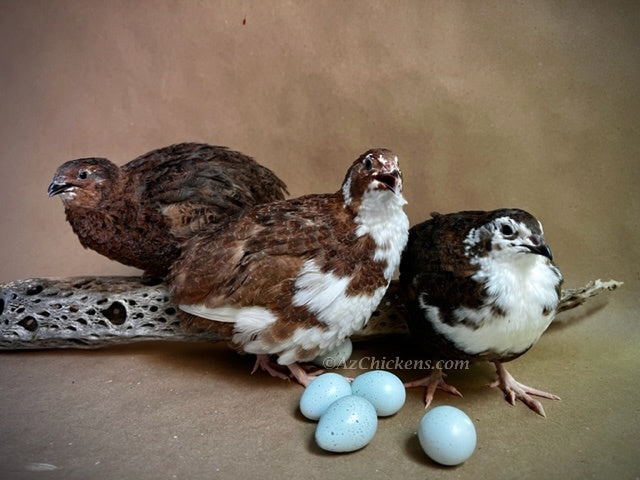
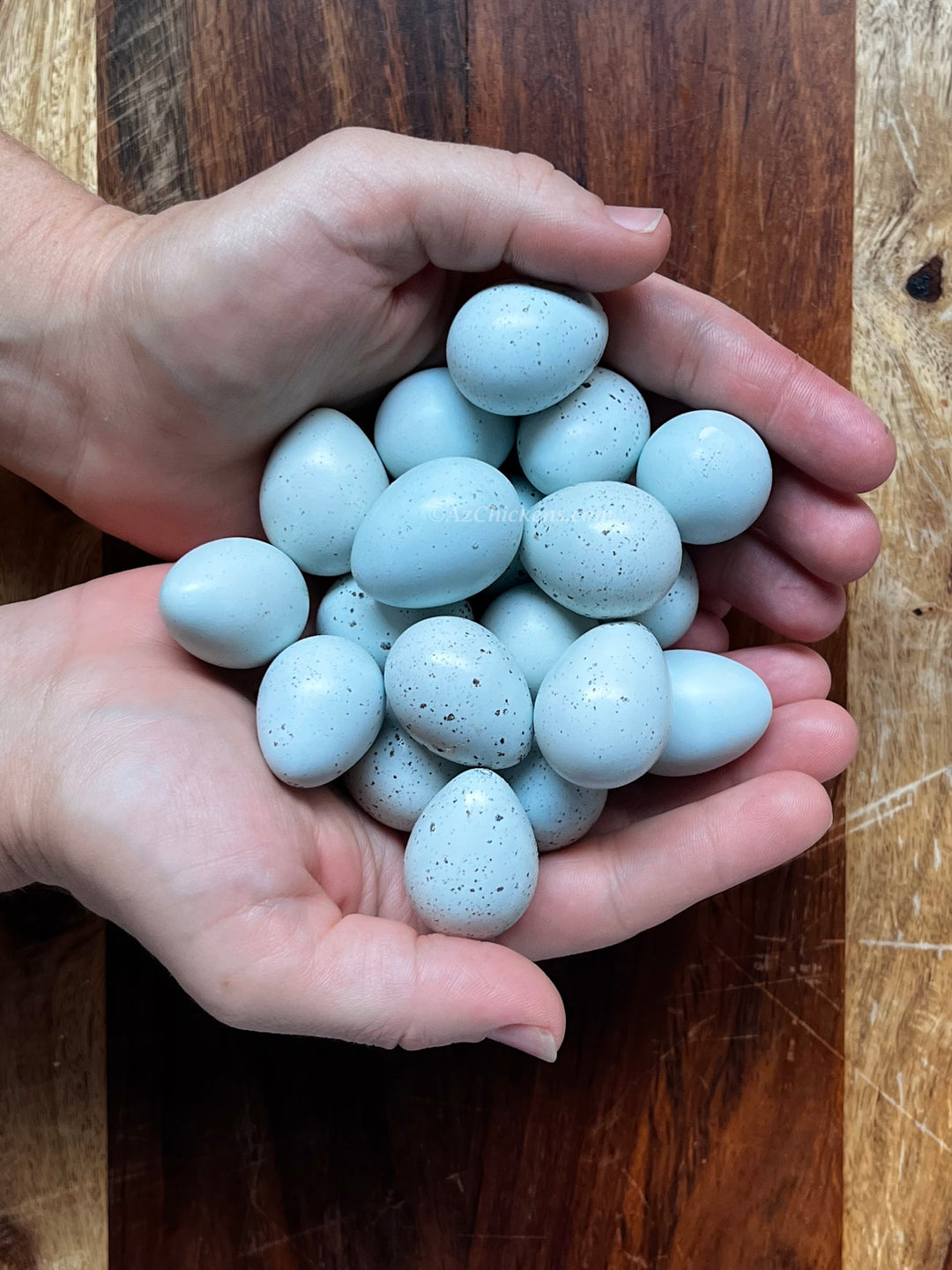
Energy: Fueling Your Quail
Quail need energy to grow, lay eggs, and stay active. Growing quail need about 2,800 kcal of energy per kilogram of food. Laying quail need a bit less, about 2,550 kcal/kg. Quail get energy from grains like corn, wheat, and barley in their food. Sometimes, extra fats are added to give laying hens more energy for making eggs.
Vitamins: Tiny but Important Nutrients
Vitamins help keep quail healthy and productive. Here are some important vitamins quail need:
- Vitamin A: 4,000 IU/kg diet - helps with seeing, fighting sickness, and making eggs
- Vitamin D3: Helps quail use calcium to make strong eggshells - usually 900-1,200 IU/kg diet
- Vitamin E: 40 IU/kg diet helps with making baby quail and protects cells
- B-vitamins: Help with overall health, using food for energy, and brain function
Not having enough vitamins can make quail grow poorly, lay fewer eggs, and get sick more easily. Most commercial quail food has the right vitamins, but sometimes extra might be needed.
Minerals: For Strong Bones and Eggs
Quail hatching eggs and strong bones need the right minerals. Important minerals include:
- Calcium: 0.8% for growing quail, 2.5-3% for layers
- Phosphorus: 0.45% for growing quail
- Magnesium: 300 mg/kg diet
- Manganese: Helps prevent leg problems
- Iron, copper, and zinc: Important for blood and overall health
- Selenium: 0.1 mg/kg diet (works with vitamin E)
The balance between calcium and phosphorus is very important, especially for laying hens. They need about twice as much calcium as phosphorus for good eggshells and bones. Giving crushed oyster shells or limestone can help laying quail get enough calcium.
Key Mineral Requirements for Quail
- Calcium: 0.8% for growing quail, 2.5-3% for layers
- Phosphorus: 0.45% for growing quail
- Magnesium: 300 mg/kg of diet
- Selenium: 0.1 mg/kg of diet
Water: The Often Forgotten Nutrient
Clean, fresh water is very important for quail health. They need at least twice as much water as dry food. Always make sure quail have clean water to drink. The quality of water is just as important as how much they have. Clean water containers often to prevent sickness. In hot weather, quail might drink more, so check their water more often.
Feeding Strategies for Different Life Stages
As quail grow, what they need to eat changes. Here's a quick guide:
- Chicks (0-3 weeks): High protein starter feed (24-28% protein)
- Growing quail (3-6 weeks): Grower feed (20-24% protein)
- Adult quail (6+ weeks): Layer feed (18-20% protein)
Coturnix quail chicks grow fast and need the right food from day one. Change their food slowly to avoid upset stomachs. Breeding birds might need a bit more protein (20-22%) to help with making eggs and baby quail.
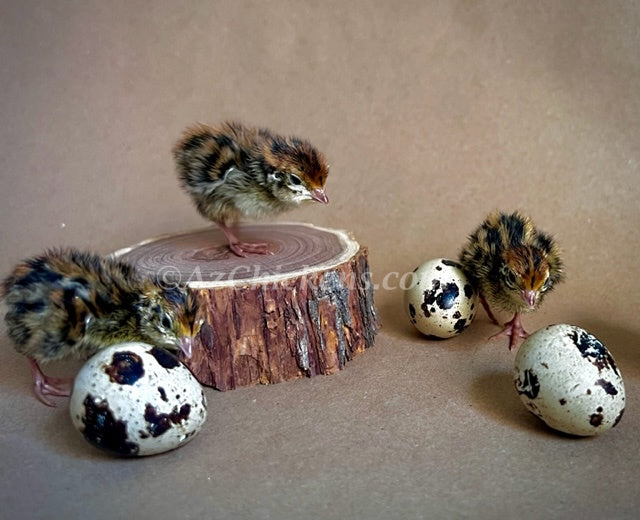
Store-Bought vs. Homemade Quail Food
While you can make your own quail food, store-bought game bird food is the easiest way to make sure quail get all the nutrients they need. If you want to make your own, research carefully and talk to an expert. Homemade diets need to be very precise and might need extra vitamins and minerals added.
AZ Chickens sells quality quail that have been fed well from the start. When you buy quail, ask about what they've been eating to help them adjust to your food.
Treats and Extras
Quail like treats, but these should be no more than 10% of what they eat. Good treats include:
- Mealworms - high in protein, quail enjoy searching for them
- Chopped vegetables - give extra vitamins and variety
- Small amounts of fruits - offer natural sugars and more nutrients
Always add new foods slowly to avoid upset stomachs. Give quail grit to help them digest their food, especially if they eat whole grains or tough treats.
How Food Affects Egg Production and Quality
Good food directly affects how many eggs quail lay and how good the eggs are. Celadon quail, known for their blue-green eggs, need the right balance of nutrients to keep their egg color and make strong shells. Calcium is very important for strong shells, while vitamins A and E help make good egg yolks. Not enough manganese can lead to weak shells and fewer baby quail hatching.
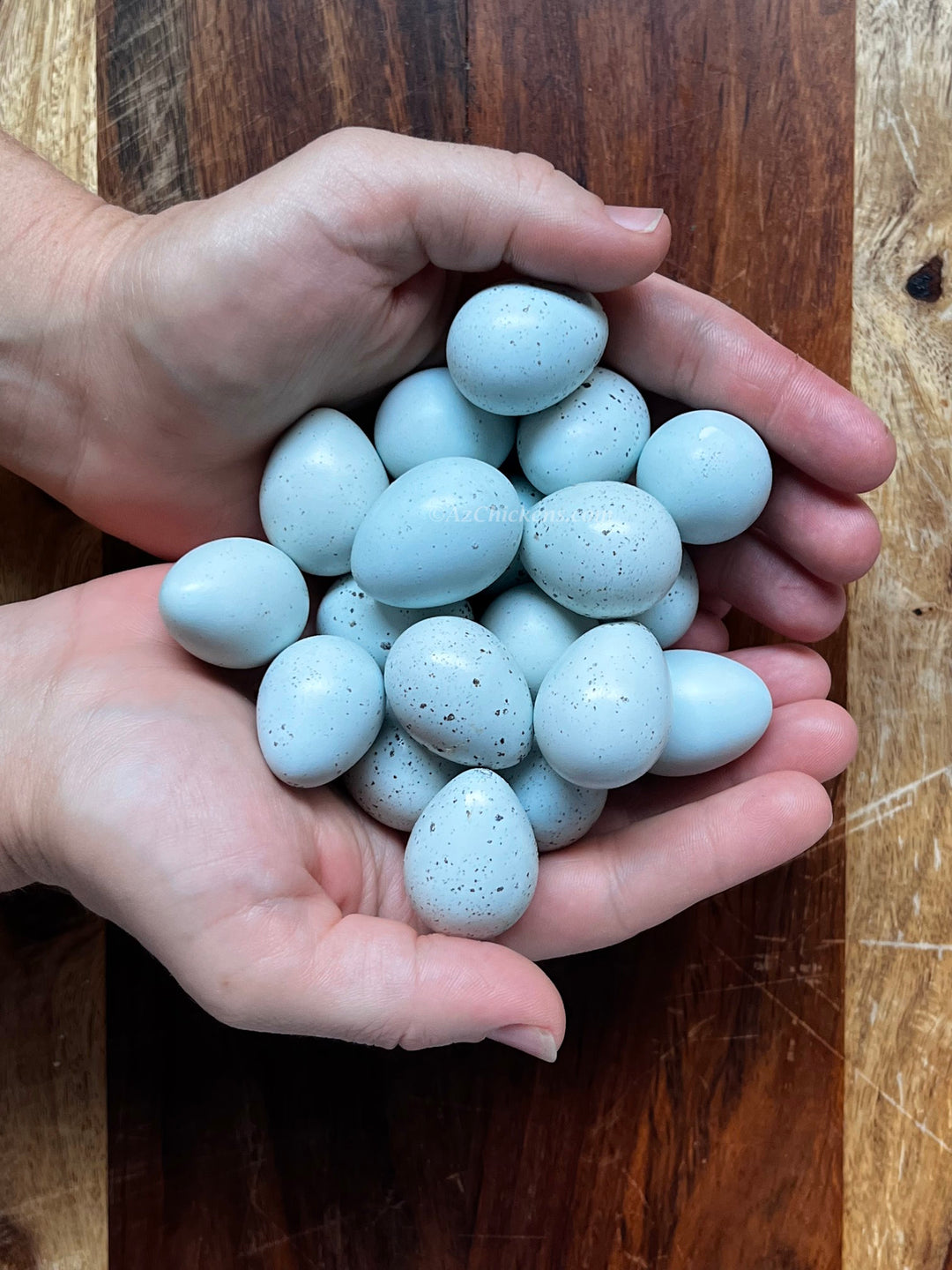
Conclusion: Feeding Your Quail for Success
Giving your Coturnix and Celadon quail the right food is key to keeping them healthy and productive. By meeting their specific food needs at each stage of life, you'll raise strong, healthy birds that lay plenty of eggs. Always provide fresh water, use a balanced store-bought food or carefully made homemade diet, and watch your birds for signs of food problems. With good care and nutrition, your quail will thrive and reward you with their unique eggs and meat.
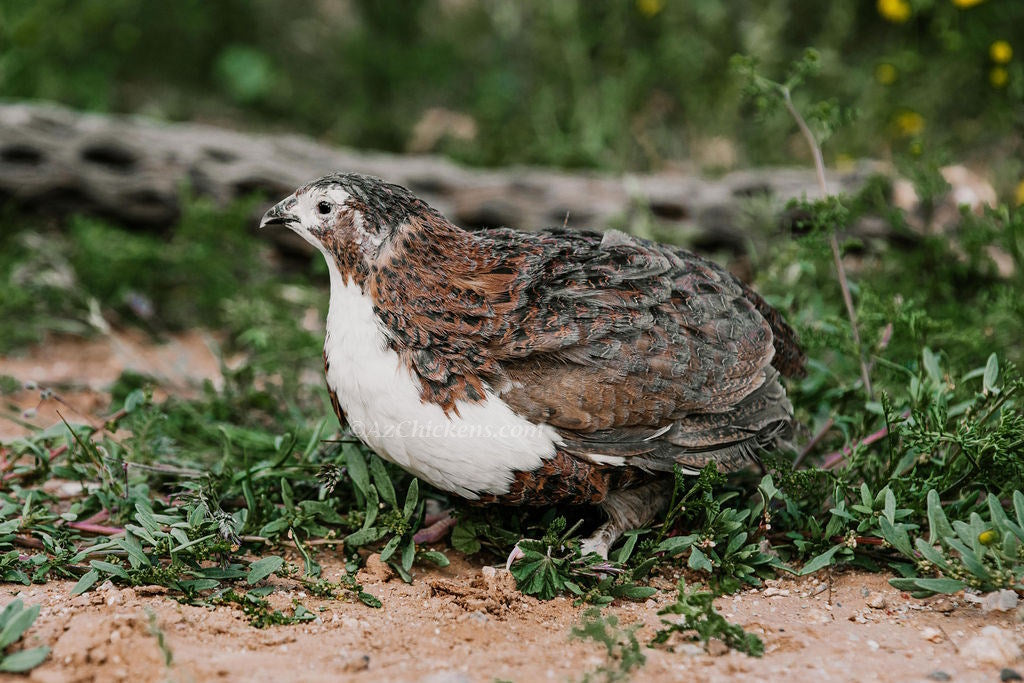
Whether you're raising quail for eggs, meat, or as pets, understanding and meeting their food needs will help you succeed. Pay attention to changes in how much they eat, how many eggs they lay, and their overall health to adjust their food as needed. With the right nutrition, your quail will be healthy, productive, and fun to raise. Happy quail raising!
